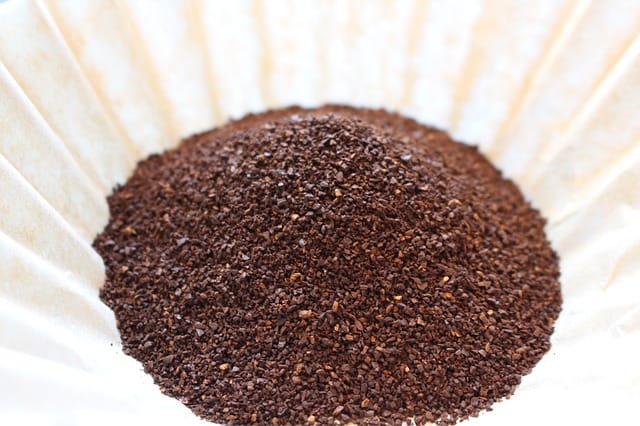Taking ginseng in any form should be done during the day to get the most of its benefits. In order to ensure you are consuming ginseng responsibly, you want to ensure to follow the instructions that accompany the supplement very carefully.
Ginseng has been shown to have great benefits for those who take it in supplement form, though it can be found in other forms.
Why Should You Take Ginseng During The Day?
There are conflicting ideas for when you should take ginseng depending on who you ask. It might depend on how you are taking ginseng, as well as what your doctor recommends.
It is advised to take ginseng during the day because herbal supplements, including ginseng, have been known to cause some people sleep disturbances. These sleep disturbances aren’t serious, but it can make your sleep more restless if you already have trouble sleeping.
Due to some of the potential side effects of some ginseng supplements, it would also not be advised to take it first thing in the morning until you know if and how it might affect you.
Should I Take Ginseng Every Day?
You can take ginseng every day if it is recommended, but you should consult with your primary care physician before making the final decision. You also want to ensure that ginseng will not have an impact on any other medications you might take. There are also health conditions that may not be conducive to taking ginseng, which should be discussed with your doctor.
However, ginseng is not meant to be a daily supplement for a long term period of time. It can be taken for two-three months at a time to target a specific health issue, or to get you through a period of time, such as cold and flu season.
However, consuming the ginseng herb as a food long term isn’t something that is recommended against.
What Is Ginseng?
Ginseng is an herb. It has been used in ancient medicinal practices including Chinese and Native American medicines for years. That being said, there are different types of ginseng.
Ginseng is typically classified by its color as well as the region it’s grown in. There is fresh ginseng, red ginseng, and white ginseng. There is also an Asian ginseng, an American ginseng, a Korean ginseng, and more.
The benefits of ginseng are said to come from two unique components within the ginseng plant, called ginsenosides and gintonin.
When Did Ginseng Start Being Used As A Supplement?
Different cultures have been using ginseng for specific health-related reasons for a long time. The uses vary between countries, but they use the same herb. It is believed to have an overall positive impact on overall health, including supporting a healthy and productive immune system.
What Forms Does GInseng Come In?
Ginseng supplements are more easily found in capsule form as well as liquid form. However, it can also be found in powder form and in oil form.
Ginseng tea is also a popular way to consume ginseng and get the health benefits in a soothing, less medicinal way. Ginseng can also be eaten in its raw form or cooked into a variety of dishes.
What Does Ginseng Taste Like?
Some people will compare ginseng to a bitter carrot or parsnip, which is a fairly apt description. It does hit the palette in a somewhat bitter fashion, but it also has a hint of sweetness.
Ginseng can be enjoyed raw, but it can be quite tough to bite into. Therefore, it’s probably best to find a way to cook it if you want to incorporate it into your diet. Ginseng also has a fairly similar smell to carrots, in that it’s pretty muted with a bit of an earthy tone.
How Is It Recommended I Take Ginseng?
The way you take your ginseng will depend on the purpose you are taking it for, as well as what form you are taking your ginseng in. If you are taking a ginseng supplement to boost your overall health, it is advised that you take it during the day according to the specific dosage recommendations and supplement instructions. It’ll sometimes be recommended to take ginseng with food.
If you are using it for a medical benefit, you should take it within a couple of hours before a meal.
What Are The Health Benefits Associated With Ginseng?
One of the most cited and proven benefits that ginseng can provide is an antioxidant effect on the body. Antioxidants are known to be an important and essential part of the diet, helping to eliminate the signs of stress and damage in our systems.
Furthermore, ginseng is also known to be an effective anti-inflammatory property, which is something many of us need. Anti-inflammatory benefits can assist with combating a variety of health issues, including gastrointestinal issues, stress, bloating, and pain.
Ginseng also has shown some promise in assisting in improving brain function. There have been studies as well as anecdotal evidence to suggest ginseng can help improve memory, and can also help stabilize mood and behavior imbalances.
Are There Any Potential Benefits Of Ginseng Being Explored Right Now?
While more studies will need to be conducted to confirm what else ginseng can help with, there are some studies that have suggested other potential benefits of the herb. Some of these potential benefits include:
- Assistance in regulating blood sugar levels
- Improving energy levels
- Reducing the effects of fatigue
- Relieving erectile dysfunction
- Reducing the possibility of and/or helping combat cancer
- Helping to support the immune system and combat autoimmune conditions
Are There Any Potential Side Effects Associated With Taking Ginseng?
There have been some non-serious side effects associated with ginseng. One of the most common side effects noted for ginseng is trouble sleeping.
Other side effects that are less common, but can happen, include headaches, upset stomach, a change in the menstrual cycle, breast pain, and dizziness. There have also been rare instances of a change in blood pressure being reported.
While it is very rare, ginseng can potentially cause a fast heartbeat, at which point you should stop taking it and notify your doctor right away.


